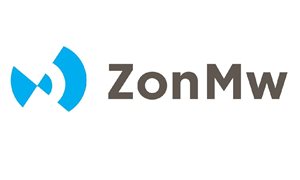
Almost everyone knows someone that has experienced depression. Depression is most commonly treated with psychotherapy or medication. But what if these treatments are insufficiently effective? Non-invasive brain stimulation, specifically repetitive transcranial magnetic stimulation (rTMS), can be an effective treatment alternative. However, treatment with rTMS could be further optimized, for example by identifying the subgroups of patients that might benefit most.
Led by Philip van Eijndhoven, Iris Dalhuisen and her colleagues set out to examine the sample and treatment characteristics that might be of influence on rTMS treatment response in patients with depression, as well as to confirm the efficacy of rTMS in depression. Their results was published in Neuroscience & Biobehavioral Reviews.
A total of 65 clinical trials consisting of data from nearly 3000 patients were included in the analysis, making this the largest meta-analysis to date. Although they did not find any associations between sample and treatment characteristics and rTMS efficacy, active rTMS was substantially more effective than sham (or placebo) rTMS. These results are clinically relevant and support the use of rTMS for depression, specifically in patients that show unsatisfactory response to treatment with psycho- or pharmacotherapy.
As the field of non-invasive brain stimulation in psychiatry is rapidly expanding, the Department of Psychiatry aims to be at the forefront of these developments. Researchers are currently investigating the placement of rTMS within the treatment algorithm for depression and innovative methods to improve treatment effectiveness, as well as rTMS as a treatment for other psychiatric disorders such as obsessive compulsive disorder and bipolar disorder.
Publication
Read the study here: https://pubmed.ncbi.nlm.nih.gov/36049675/
Dalhuisen I, van Bronswijk S, Bors J, Smit F, Spijker J, Tendolkar I, Ruhé HG, van Eijndhoven P. The association between sample and treatment characteristics and the efficacy of repetitive transcranial magnetic stimulation in depression: A meta-analysis and meta-regression of sham-controlled trials. Neuroscience & Biobehavioral Reviews. 2022 Aug 30:104848.
Related news items

Remember the good times
20 December 2022Depressed patients automatically recall negative events and information easier than positive things. We call this a negative memory bias. Training positive memory to counter this negative bias is a promising e-MentalHealth method to alleviate depression.
go to page
Joint research in regional hospitals New research projects from promotion fund
22 November 2022Four research projects have been honored in the promotion fund of the Radboudumc and four regional hospitals. The research projects, which are a collaboration between CWZ, Jeroen Bosch Hospital, Rijnstate, Sint Maartenskliniek and the Radboudumc will receive a contribution of 240,000 euros.
go to page
A new perspective on ADHD Strengths and positive aspects in a qualitative study
22 November 2022Research in ADHD almost exclusively focusses on negative aspects of ADHD. This study showed that people with ADHD also experience a broad range of positive aspects related to their ADHD. The results were published in Frontiers of Psychiatry.
go to page
Having an eye for myotonic dystrophy on the experiences of patients and their support needs
22 November 2022Ilse Karnebeek, nurse practitioner performed a qualitative study to obtain insight in patients’ experiences and reflections of diagnostic delay and the support needs of DM1 patient with EOC. The research group , led by Nicol Voermans, published the results in Neuromuscular Disorders.
go to page

